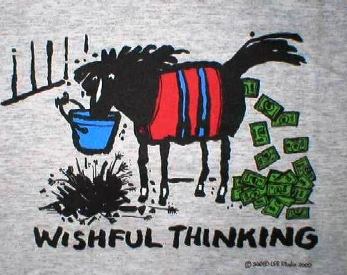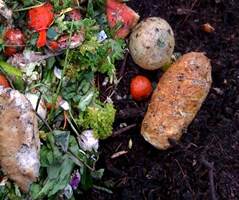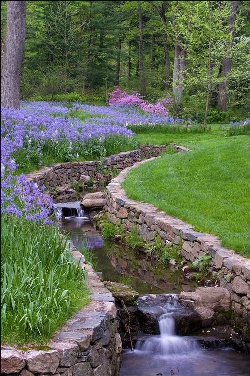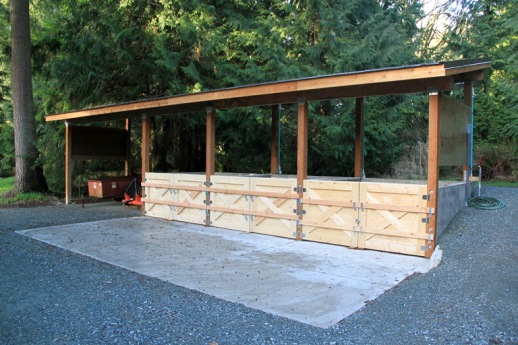|
 |
Newsletter
August 2015
|
|
 |
| |
|
ASP Composting Hands-On Workshop
Thursday, September 16th - Sunday, September 19th
|
|

|
We are now taking registrations for our next bi-yearly compost training workshop. No experience necessary! This event is for people who are already composting as well as those who are planning to get started.
|
|
We intentionally keep the group small (8-10 participants) to ensure that everyone has the opportunity to participate and learn the process first hand. Our next Workshop is just THREE weeks away! There are still spots open so let us know if you would like to join us.
See our Workshop Flyer for more information. If you have questions or would like to sign up, please call our office at 360-568-8085 or email sherri@o2compost.com.
|
Tail End Profits
Is it wishful thinking to convert your manure pile into Tail-End Profits? No, not at all.
Many of our clients sell their compost to neighbors and gardeners in their communities. In addition to off-setting the cost and hassle of manure disposal, they net a respectable profit that can go toward paying for projects around the farm or a vacation fund.
|
|

|
Some of our clients, like Brian S. in North Carolina, set up a compost system with the explicit intention of selling the compost. Brian sells his compost as a bulk product "as is" (lumps & bumps), loaded out at his farm. He also shreds some of his compost to produce a uniform bagged product that he sells both at the farm and at local farmers markets. Brian's paid for his compost system and new tractor in the first year he operated. As a side-business, he has more customers than product, leading to a price for his compost that is well above average for competing products.
|
|
Other folks, like Bob N. in Massachusetts, sell their compost "by accident". Bob had been composting the manure from his horses for several years and spreading everything he produced on his own pastures. One day a neighbor asked him what he was up to and when he heard the word "compost" he asked if he could buy some for his garden. Very quickly, word got out and Bob was selling everything he produced, leaving him without any to spread on his own farm. He raised his prices 40% to slow down sales, but that didn't work - he just ended up making more money.
Many years ago, Darrel P. in Washington installed an O2Compost system. This enabled him to stop spending $1,500 per month to self-haul and dispose of his manure. Instead, he sold his compost to a local tree nursery and netted $1,250/month (a positive $2,750/month to his bottom line). Needless to say, Darrel was quite pleased with this turn of events and his parting comment was, "Perhaps now I need more horses."
Bill B. in Oregon started out with 2 horses and over a few years his herd somehow grew to over 80. Bill constructed an O2Compost system and sold all of his compost to a local bagged potting soil company. This working relationship evolved to where the owner of the soil company took over operation of the facility on Bill's farm (equipment, labor, the works) and pays Bill $5.00/cubic yard for the finished compost. Now that's a "Working Asset"!
We have two clients (one in Ontario Canada and the other in Virginia) who sell their compost in "tea bags" over the internet. Both products are OMRI Certified. The idea is to steep the compost in room temperature water overnight to allow the nutrients and beneficial micro-organisms to be extracted from the compost. This water is then used as both a root drench for house plants and raised bed gardens, and as a foliar applicant. Compost tea increases the organic content in the soil which reestablishes the complex microbiology of healthy soil. As a foliar applicant, nutrients are absorbed into the plant leaves, and the beneficial micro-organisms out compete molds and harmful bacteria on the leaf surfaces.
Selling compost is a creative process that can bring added profits to any farm.
|
Food Waste Composting - Part 1
Food Waste Can it be composted? Yes, absolutely!
Before we delve into the topic of composting, let's take a closer look at Food Waste - what is it?
Food waste is the loss of edible food that occurs at every step in the food chain: 1) at the farm; 2) in storage; 3) in transit; 4) in grocery stores and restaurants; and 5) in our homes.
It is estimated that:
- 40% of all food grown in the USA is not eaten - by us or other animals;
- The average American family spends $2,000 on food they do not eat;
- 25% of ALL water that is consumed is used on crops that we don't eat;
- 20% of fish are thrown overboard before the boats arrive at the dock; and
- 20% of the waste in our landfills is comprised of food waste, leading to methane production.
|
|

|
While it is inevitable that some food spoils before being sold, a very large portion simply does not meet market specifications. As an example, I worked on a food waste compost project in Auckland, New Zealand where greenhouse tomatoes were picked and discarded (by the tens of thousands) if they showed any trace of red. If they were allowed to "vine-ripen", they would spoil by the time they reached the stores in Australia. They may have looked like tomatoes but they certainly didn't taste like tomatoes. |
|
There is a fascinating TEDx video on the topic of food waste, entitled "A Recipe for Cutting Food Waste", by Peter Lehner. It is only 15 minutes long and I strongly encourage you to watch it.
There is another humorous (and somewhat raunchy) video on this same topic by John Oliver on his show, "Last Week Tonight". I found this video quite interesting because it discusses the confusion over food expiration dates and the problem it causes when perfectly good food cannot even be donated to those who need it most.
The net truth is this: hunger in America can be eliminated. I believe it - and I invite you to "Google" it and draw your own conclusions.
I will be writing a series of articles on food waste composting in upcoming newsletters but, in the meantime, I encourage you to conduct a simple test to determine how much food waste you generate.
Step 1 - Clean out your refrigerator and freezer of all food that you know (in your heart of hearts) neither you nor your anyone else in your family will eat;
Step 2 - Grocery shop and eat as you normally do for a week or a month; and then
Step 3 - Repeat Step 1 and weigh what you have discarded.
I did this and I was shocked at how my good intentions (to eat more vegetables) had gotten the better of me. I am now buying less and doing my best to eat everything I buy.
Stay tuned for Part 2 - Vermi-Composting in Your Basement
|
Chanticleer - A Pleasure Garden
|
|
The Chanticleer estate dates from the early 20th century when land along the Main Line of the Pennsylvania Railroad was developed for summer homes to escape the heat of Philadelphia. Adolph Rosengarten, Sr. and his wife Christine chose the Wayne-St. Davids area to build their country retreat.
Mr. Rosengarten's humor is evident in naming his home after the estate "Chanticlere" in Thackeray's 1855 novel The Newcomes. The fictional Chanticlere was "mortgaged up to the very castle windows" but "still the show of the county". Playing on the word, which is synonymous with "rooster", the Rosengartens used rooster motifs throughout the estate.
Between April and October, the public is welcome to visit Chanticleer and wander the many pathways that serpentine the 38 acres of manicured gardens. |
 |
|
Chanticleer also offers a wide range of classes, workshops and conferences in association with the Pennsylvania Horticultural Society.
Behind the scenes, Chanticleer is composting all of the green waste that is generated in the garden, with assistance provided by O2Compost. All of the compost that they produce is used in garden beds, potting mixes, and seed & soil blends for restoring worn turf. Their goal is to produce a fine textured compost for top dressing their turf areas.
Scott Steinfeldt, a Chanticleer staff member, attended the O2Compost Hands-On Workshop in 2013 and later said "This class bridged the gap between knowledge and understanding." He went on to say that the technical support that was offered to him was "hands down the best part of the entire learning experience. The O2Compost staff were always available to answer my questions and left me with the feeling that the only dumb question is the one I didn't ask."
To learn more about Chanticleer, visit their website: http://www.chanticleergarden.org.
|
Frequently Asked Question
"When does a manure pile become too old to compost?"
ANSWER:
Our rule of thumb is that if manure is within six weeks old and has not dried out excessively, it will contribute biologic heat to the process. Older manure will contribute progressively less energy to the system and OLD manure will not contribute any. Our recommendation with old manure is to mix it in with the fresh stuff at about 20% of the mix. It will still compost down, which is good, but it will be "riding on the coattails" of the fresh manure.
|
A New Compost System Comes On-Line |
|

|
OWNER: Bonnie P.
LOCATION: Snohomish, Washington
3 horses on shavings bedding
The finished compost is spread onto the pastures, the berry patch, and landscaping.
This system can also be found on our website.
|
Coming Events
September 16-19, 2015
ASP Composting Hands-On Workshop
- Seattle, Washington
This 3-day workshop will teach you the ins and outs of aerated composting - up close and personal. See our Workshop Flyer for more details. Space is limited so contact us today if you would like to attend.
Call 360-568-8085 or email sherri@o2compost.com.
October 6 & 7, 2015
Composting & Compost Tea Workshop
- Cambridge, Massachusetts
Make high quality compost and utilize it in organic soil nutrient land management in this dynamic two day workshop co-sponsored by O2Compost and Compostwerks. For more information (and to register), visit the Compostwerks website.
ASP Organic Land Care Workshop
- North Carolina State University
Originally scheduled for October 27-28, this workshop has been temporarily postponed. Watch for more information on this workshop in upcoming newsletters.
|
|
Protecting Our Land, Air and Water Resources
|
|
O2Compost
Price-Moon Enterprises, Inc.
PO Box 1026
Snohomish, WA 98291
|
Phone: 360-568-8085
Email: info@o2compost.com
www.o2compost.com
|

|
|
